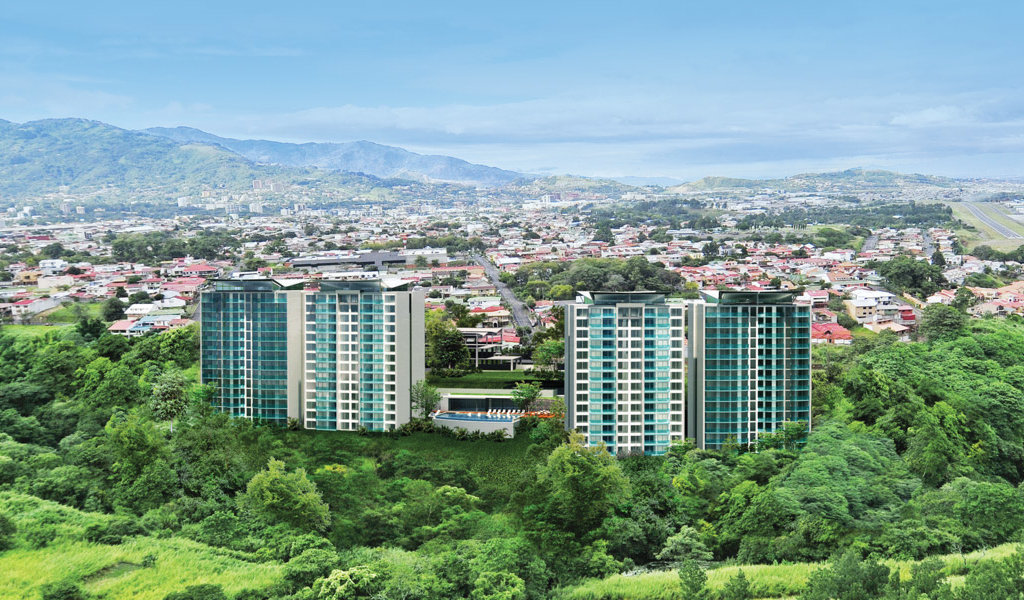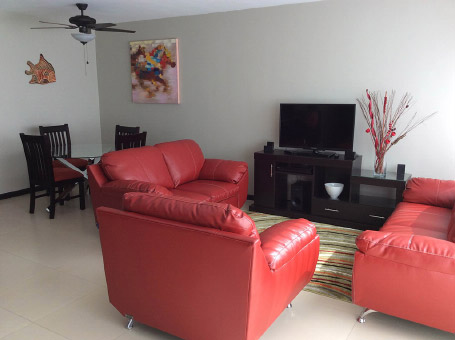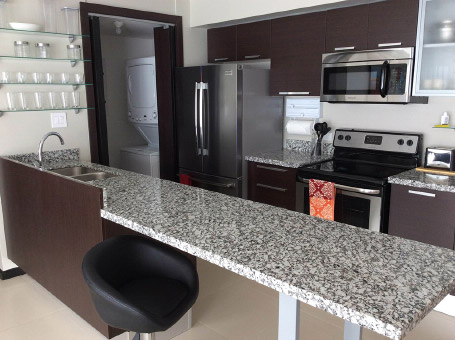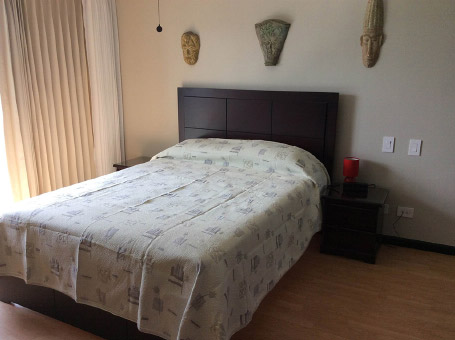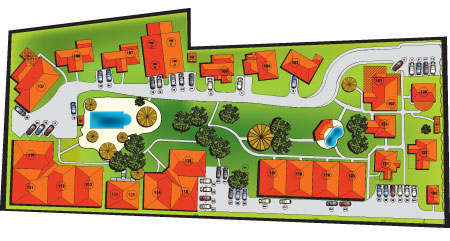Comments
1. Chinese Cement and Phantom companies: A scandal and political corruption in the making / doing... and the banks are right here in the middle of it...
2 / 3 and 6: RECOPE... when read together, they give you an inclination of how corrupt and utterly contempetable this government organization is and how weak the counter balancing institutions within the society are which continues to allow it to exist.
4. A road planned for 48 yrs under construction for 11 yrs will again be delayed... how can anyone have any faith ??? actually no one does.
5. Red Taxis: they are putting the screws to Sala IV... let's see what happens.
7. Two years in and NOTHING happening... and it won't... read the dysfuctionality of the government... Fitch and the others will continue to degrade CR's financial condition and CR will continue to kick the can down the road...
1. Chinese cement comes from ghost company
A new complaint added to the three previous investigations by the Attorney General’s Office questions the company in Hong Kong where the Bank of Costa Rica (BCR) is transferring a multimillion-dollar loan of ¢10.9 billion to finance cement imports from China.
The two-page document explains the facts and other 10 legal reports such as bank deposits, board of directors of the BCR and letters from banks that question the millionaire transactions in national and international accounts.
The evidence was handed over to the Prosecutor in charge of the investigation to question whether the multi-million dollar credit financed with Costa Rican money was deposited in a ghost company in Hong Kong and shows -with copies of bank deposits- that some of the money returned to Costa Rica through a private bank.
In addition, evidence was presented of an alleged gift received by Citizen Action legislator Víctor Morales, from the debtor of the loan as a “favor” for his efforts with the Government.
The new information of the Public Prosecutor’s Office mentions the company SINOCEM DE COSTA RICA as the debtor of the loan to the company SINOBUILDING MATERIALS HONG KONG LIMITED, which receives the money in Hong Kong, and several public employees.
Doubts arise because the company where the bank deposited ¢ 10,900 million of the cement credit did not exist legally and it was actually created 14 days after the BCR approved the money for SINOCEM to import Chinese cement.
This is a summary of the events:
- On October 6th, 2015, the loan for Sinocem de Costa Rica was approved in the Credit Commission.
- On October 9th, the Presidential House asked the BCR to finance the import of Chinese cement.
- On October 14th, the Bank’s Board of Directors agreed to finance the cement import.
- On October 14th, the Board of Directors of the BCR changed its policy regulations to resolve the legal vacuum that led to the approval of a loan that was not insured.
- On October 20th, Wuping founded Sinobuilding Materials Hong Kong Limited in China.
The complaint raises the question of why credit bureaus did not warn that billions of colones of public funds would be deposited in a company that did not even exist and had no business history.
The authorities also questioned that the loan was granted without a real guarantee, so the BCR was forced to change its internal credit regulations to accept a policy from the insurer Oceánica and subsequently decided to include the actual cement itself as collateral, even though it is a perishable product.
Everything happened 5 days after the Presidential House and the BCR agreed to finance the Chinese cement import business with public funds, an act that is questioned by Legislator Patricia Mora from Frente Amplio, who will request the reopening of the investigation in the Commission of Control of Income and Public Expenditure of the Legislative Assembly.
The company from Hong Kong was founded by a citizen named Wuping, who has visited Costa Rica five times in recent years.
Another interesting aspect is that the website of the company that received ¢ 10.9 billion in Hong Kong is not domiciled in the Asian country, but its domain was administered until September 9th, 2016 in offices of the credit’s co-debtor in San José, La Uruca, and under an email from the debtor company.
Moreover, on February 1st, 2016, the company received in its accounts in Hong Kong the first $10 million (approximately ¢ 5,5 billion colones) and five days later the debtor company received a $2-million deposit (approximately ¢ 1,1 billion colones) in a private-bank account.
The re-entry of the millionaire amount to the country raised the alerts of the private bank that asked for explanations. The company in Hong Kong justified the money as “advertising expenses and product damages,” although the cement did not arrived in Costa Rica until April 2016.
Moreover, by means of an appeal, a legislator of the Special Permanent Commission for the Control of the Income and Public Expenditure of the Legislative Assembly accused Minister of Finance Helio Fallas. The legislator asked Fallas for the information needed to investigate the case of Chinese cement but Fallas denied all requested information alleging right to confidentiality.
The Constitutional Court ruled in favor of the appeal and ordered the Minister of Finance to provide all information concerning the traceability of the cement imported from China. This sentence is pending.
2. RECOPE to continue spending $ 150,000 per month on failed refinery project
The Costa Rican Chinese Reconstructing Society (SORESCO) will continue to generate a monthly expenditure of $ 150 thousand (¢ 84 million), despite the fact that Costa Ricans do not and will not get any benefits.
This amount, partly paid by the Costa Rican Oil Refinery (RECOPE), is allocated, among other expenses, for the salary of 8 employees (3 Costa Ricans and 5 Chinese) whose work is still unknown.
RECOPE assured that it tried to dissolve this failed partnership, which has caused the country to waste millions of dollars since 2009, when the negotiation with China was made for a new refinery, under the administration of Óscar Arias Sánchez.
However, the second partner of SORESCO, China’s National Oil Corporation (CNPCI) opposed the dissolution, so the company will continue to operate despite the fact that neither party will obtain profits and the works stopped in 2013.
Sara Salazar, President of RECOPE, indicated that the decisions of the company are effective when they are taken unanimously, so if only one member opposes, there is no agreement.
Following the intervention of the Comptroller General (which stopped the operations of the company in 2013) and the constant criticism to RECOPE, the refinery decided to stop being a partner since last April.
However, at the last Assembly on January 11, 2017, held in Beijing, China, CNPCI opposed the following proposals by RECOPE:
- Dissolving and liquidating SORESCO by mutual consent due to the unfeasibility of continuing with the project.
- Dissolving and liquidating SORESCO based on the Costa Rican legal system.
- Discussing the payment of salaries, expatriation fees and other benefits to staff after the dissolution of SORESCO.
- The reduction of the current staff of SORESCO (8 people).
At the same meeting, CNPCI claimed they were entitled to receive compensation for damages and prejudices as a result of non-compliance with the agreement of the society and RECOPE’s decision to dissolve it.
SORESCO already spent $67,755,127 of the 100 million dollars it had, ($ 50 million of which were contributed by Costa Ricans.)
Expenditures will continue to grow, both for CNPCI and for RECOPE, while the refinery’s hierarchs study the scenarios for international arbitrage to put an end to the debate. (CRHoy)
3. The Costa Rican Chamber of Industries opposes the fuel-price increase requested by ARESEP
The Costa Rican Chamber of Industries announced that it will strongly oppose the fuel-price increase requested by the Public Services Regulatory Authority (ARESEP) by the end of 2016.
The chamber thinks the increase is unacceptable since they consider that the Costa Rican Oil Refinery (RECOPE) intends to increase its operating costs and operating surpluses for its aggressive investment plan.
Now it turns out that the Central Bank of Costa Rica has managed to maintain very low levels of inflation, close to zero, but RECOPE domestic expenses increased by 30% in 2016. Instead of transferring its inefficiency, RECOPE should organize its internal issues, declared Ricardo Solera, Vice-President of the ICRC.
According to the ICRC, these increases are not related to inflation, which was -0.8% in 2015, 0.8% in 2016 and it is estimated at 3% by 2017. The main reason why operating costs increase is due to expenses, especially wages, charges and fees, which represent 41% of RECOPE total operating expenses.
4. Solís road promise impossible now
According to the country’s road works department (MOPT), the new road connecting San José to San Carlos will not be done before the end of the Solís administration. Solís had promised that the 27 mile road would be finished before he left office in 2018. The road was planned 48 years ago and has been under construction for 11 years. It’s been plagued by delays, including one currently. (La Nación)
5. Red taxi drivers turning up the heat on judges
A representative of the red taxi drivers insists on the constitutional court rendering a decision within 15 days on the legality of Uber. Taxi drivers demonstrated Thursday in front of court buildings in several municipalities including Atenas, San Ramón, San Carlos and Perez Zeledon. The decision of the Sala IV judges is expected to have a major impact on the country’s transportation services. (Diario Extra)
6. Fuel prices set to rise for the second time this year
The second hike in fuel prices this year could take effect before the end of this week, and a third one is already waiting approval.
The Public Services Regulatory Authority (ARESEP) last Friday approved increases between ¢14-28 in the per-liter prices of Super and Plus gasoline and in Diesel.
At midnight of the day new prices are published in the official newspaper La Gaceta a liter of Super gasoline will go from ¢592 to ¢619 ($1.05-1.10). One of Plus gasoline from ¢562 to ¢ 590 ($1-1.05) and one of Diesel from ¢475 to ¢489 ($0.84-0.87).
New prices mean that, for example, filling out a 45-liter tank with Super gasoline will go from ¢26,640 to ¢27,855 ($47.34-49.50). With Plus gasoline will go from ¢25,290 to ¢26,550 ($44.95-47.18) and with Diesel from ¢21,375 to ¢22,005 ($38-39.10).
The National Oil Refinery (RECOPE) requested the price change last Jan. 13, arguing increases in international prices of oil products.
The first price change of this year came into effect on Jan. 6. At the time the per-liter price of Plus gasoline went up by ¢37, Super gasoline by ¢30 and Diesel ¢48.
More hikes coming
ARESEP last week reported that it is currently evaluating a third price setting requested by RECOPE and that it will issue a ruling in coming days.
The refinery requested increases of ¢7.78 in the per-liter price of Super gasoline, of ¢7.47 for Plus gasoline and ¢5,06 more for one of Diesel. RECOPE this time based its petition on increased operating costs expected for this year.
Among others, RECOPE needs more funds to pay mandatory extra-salary benefits granted to its 1,742 employees in collective bargaining agreements.
But prices could go even higher. RECOPE could file another price-setting request as soon as next week as the law autorizes the agency to file new price requests during the first two weeks each month, based on variations in international prices of oil.
RECOPE officials still have yet to confirm whether they will file a petition for new prices.
Public demonstration
The hikes in fuel prices led citizen group “Ya no más RECOPE” (No more RECOPE) to call for a public demonstration to request the opening of the fuel distribution market in the country.
The group’s Facebook profile is calling on the population to gather at La Sabana Park, west of downtown San José, on Saturday, Feb. 18 at 9 a.m. From there, demonstrators will march through Paseo Colón, the capital’s 2nd Avenue and will end at Plaza de la Democracia in front of the National Museum.
Messages say attendants will march to protest against RECOPE and ARESEP’s constant abuses.
Others say they will protest against the administration of President Luis Guillermo Solís for failing to invest the funds from the country’s disproportionate taxes in improvements to the country’s roads. (TicoTimes)
7. Government tables draft bills aimed at approving fiscal reforms
President Luis Guillermo Solís will table a series of draft bills at the Legislative Assembly designed to increase government income and curb the country’s fiscal deficit, Casa Presidencial officials have announced.
Vice President and Finance Minister Helio Fallas and Presidency Minister Sergio Alfaro said at a press conference on Thursday that the Executive Branch will withdraw from the prioritary list of the Legislative Assembly four bills proposing tax reforms and measures to cut public sector spending.
“The four bills are at a stalemate. There is absolute no progress and therefore we will table them on Monday,” Alfaro said.
Fallas said that Finance Ministry officials on Friday sent the Legislative Assembly new drafts, mostly focused on modifications to the country’s Sales Tax and Income Tax.
President Luis Guillermo Solís denied that the decision to table the bills was prompted by fears of the calls for a national strike that public sector unions made for next month.
“We’re not bowing down before anyone here… The bills were not viable. That’s the only reason why we’re tabling them,” Solís told reporters at a public event on Friday.
Vice President Fallas said that the government’s goal is to reach consensus to move forward with new draft bills they will submit to the Legislative Assembly on Feb 2.
Urgent reforms
Proposals to approve tax and public spending reforms have been stranded in the Legislative Assembly for almost two years.
Delays on the approval of these reforms already had consequences for Costa Rica. Credit ratings agency Fitch Ratings earlier this month downgraded Costa Rica’s Long-Term currency bonds to ‘BB’ from ‘BB+’. The country’s outlooks also were revised to Stable from Negative.
The agency attributed the change to the country’s deteriorating debt dynamics “driven by large fiscal deficits and continued institutional gridlock preventing progress on reforms to correct fiscal imbalances.”
On Friday Fitch also downgraded Long-Term Issuer Default Ratings for six banks operating here. Four of them are state-owned banks: Banco Nacional de Costa Rica, Banco de Costa Rica, Banco Popular and Banco Internacional de Costa Rica. Two are private banks: BAC San José and Davivienda.
Fallas said that other ratings agencies and international organizations are scheduled to visit the country in the next two months to evaluate progress on the fiscal reforms.
“It would be very dangerous for the stability of our country to continue receiving lower ratings,” he said.
Unions call off strike
Among the bills the government tabled was one that aims to eliminate a series of extra-salary bonuses and benefits paid only to public-sector employees.
The decision prompted leaders of BUSSCO and Colectivo Sindical Patria Justa, two umbrella groups that bring together over 100 workers’ unions and groups, to call off a strike scheduled for Feb. 6.
Unions leaders at a press conference on Friday confirmed they agreed to call off the strike following the government’s decision to remove bill #19,506 from the Legislative Assembly’s agenda.
BUSSCO coordinator Gilberto Cascante said the decision was “a triumph for the working class,” but noted that “they will keep up the fight until all similar bills are finally withdrawn from the Assembly.”
The strike would have also affected classes at all public schools in the country, scheduled to begin that same day.
Private sector: Irresponsible decision
Leaders from private-sector chambers and groups lashed out after the government’s announcement and accused the administration of President Solís of having double standards.
The Costa Rican Union of Private-Sector Chambers and Associations (UCCAEP) on Friday called the government’s decision “irresponsible and incongruous.”
UCCAEP temporary President Víctor Ruiz said that the administration of President Solís, “from its very beginning, has minimized the importance of passing the fiscal reforms.”
Ruiz said that just over a year ago Vice President Fallas sent UCCAEP a letter saying that the country’s fiscal situation is critical and that it required urgent action.
“But now they contradict themselves, showing poor political management,” he said.
Opposition to the government’s fiscal plan also comes from lawmakers from all parties, even Solís’ Citizen Action Party.
A group of 22 legislators last year signed a public letter saying that they would not support any proposal to create or increase taxes until the government pledges to reduce public spending, particularly extra-salary bonuses and benefits.
Fiscal plan
President Solís’ initial plan included a series of reforms including turning the 13 percent Sales Tax into a Value-Added Tax (IVA) of 15 percent.
The plan also proposed increasing the number of products and services that would be taxed. Among others, it sought to collect taxes on tourism services, self-employed professionals, property rentals, gyms, and other services that currently are tax-exempt.
Another initiative proposed taxing private health and private education services with a special 4 percent IVA.
It would also have raised, by 1 percent, the Selective Consumption Tax charged on non-essential goods such as liquors, cigarettes and new vehicles, among others.
The plan’s goal was to collect ¢400 billion (some $713 million), equivalent to 2 percent of the country’s Gross Domestic Product (GDP).
The government now will aim at collecting some 0.6 percent of GDP, Fallas said.
“The key is to modernize the IVA and introduce new elements that will allow us face the challenges that the new digital economy generates,” he said.
The vice president called on Legislative Assembly President José Alberto Alfaro and top lawmakers from all parties to weigh in on the government’s new plan and submit feedback by next Thursday. (TicoTimes)

